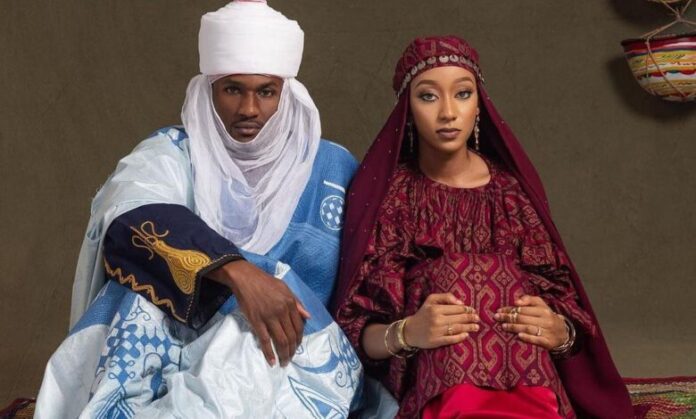After every elite wedding in Hausaphone Muslim Northern Nigeria, social media chatter always obsesses over how the conduct of the weddings negate the ethos of Sharia and how the anti-poor, hypocritical moral police called Hisbah chooses to look the other way when these transgressions occur but wax all holier-than-thou and aggressively self-righteous when poor people as much as wear a hair style.
We saw how Yusuf Buhari’s profligate wedding to Zahra Bayero violated all the conventions of traditional Muslim wedding. We saw videos of children of upper-class Muslim northerners dancing to and repeating raunchy lyrics of southern musicians while the cowardly and morally bankrupt Hisbah brigade looked the other way.
The consequence-free violation of Sharia moral codes by the children of northern Nigeria’s political and cultural elites has caused people to say that the rich and the powerful are exempt from the self-denials of Sharia and that Hisbah is merely a gaggle of sickeningly sanctimonious and spineless thugs.
This is a legitimate critique, but beyond the obvious hypocrisy of differential moral codes for the rich and the poor in Muslim northern Nigeria, I’m seeing an intriguing quest for social homogeneity between the children of Northern Muslim elites (who are typically culturally insular) and Southern Nigeria. This has a lot of implications for the future of Nigeria.
The weddings of the scions of the upper crust of the northern society are becoming increasingly indistinguishable from southern weddings. The songs, the dances, the vibes, and the cultural performances, such as “spraying money,” now mirror southern Nigeria.
And because they are immunized against the sanctions of Hibah by their wealth, social status, and symbolic capital, scions of Arewa’s highest social hierarchy are instituting a new culture that bridges the distance between the North and the South.
A new generation of Nigerians, mostly from the South, is generating a vast repertoire of national identity symbols in songs, dances, cinematic experiences, and other forms of cultural expressions that the rest of the word has come to regard as uniquely Nigerian. Because of the time-honored political and cultural tensions between the north and the south, it was always thought that the north wasn’t partaking in the emergent southern-inflected Nigerian songs, dances, and cultural practices that the world increasingly recognizes as distinctively Nigerian.
In my September 26, 2020 ethnographic forecast of an evolved Nigeria titled “Nigeria Won’t Break. It’d Evolve. Here’s How,” I prognosticated that three different identities would emerge in Nigeria in the coming generations: a Hausaphone northern Nigeria (with a few holdouts), which would be riven only religion; Yoruba-speaking western Nigeria; and “an alchemic ethnic fusion of disparate groups [in eastern and southern Nigerian] enabled largely by the enormous creolization of Nigerian Pidgin English and the Pentecostalization of the Christianity of the regions.”
I didn’t reckon that the relative cultural provincialism of the far North would loosen and find common grounds with the South. The surprising fluency that the children of rich northern Muslims show about modern southern culture during weddings shows that the structural integrity of the hermetically sealed cultural silos of the North is giving way.
This is particularly significant because it involves the elites of the north who can—and do—subvert the region’s appointed and unappointed moral police without consequences. In conservative societies, cultures often evolve through the osmotic pressures of elite emulation, that is, through the conscious and unconscious aping of the ways of the cultural elites who enjoy symbolic and social prestige. With time, even the moral police will give up and take on new battles.
So, for me, if there is any redeeming feature in the decadent, Sharia-defying weddings among the upper crust of northern Nigeria, it is that, in spite of itself, Nigeria is self-fashioning in ways that transcend its hitherto rigid cultural boundaries.
By Farooq A. Kperogi
Twitter: @farooqkperogi










